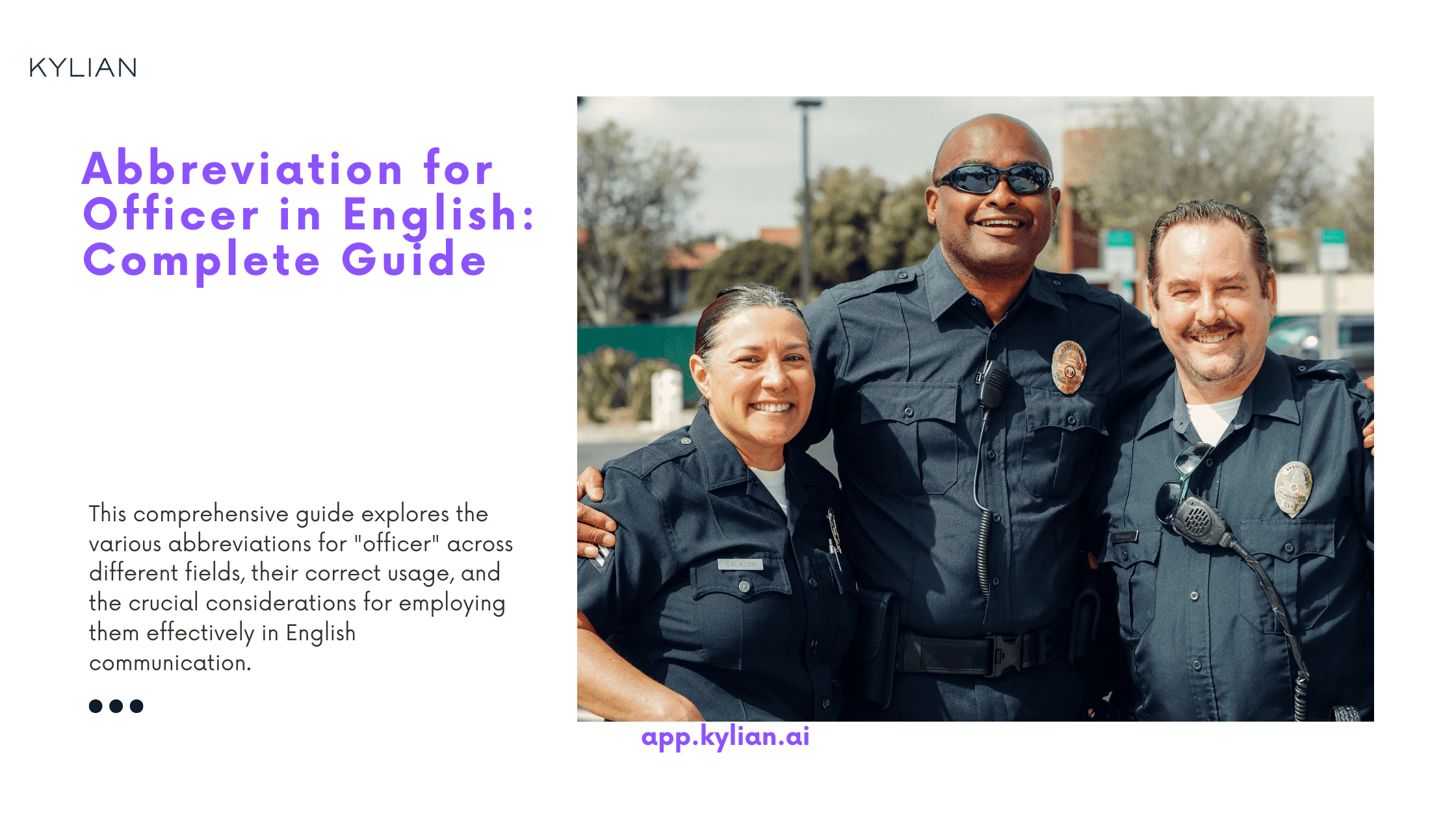Where Most People Come to Learn A Language
Our blog covers language learning tips and hacks we've acquired over the years


Potatoes or Potatos: Which Spelling is Correct in English?
In the landscape of English language nuances, few spelling conundrums generate as much consistent confusion as the humble potato. Is it "potatoes" or "potatos" when referring to more than one? This seemingly simple question reveals a fascinating intersection of etymology, linguistic rules, and the evolution of English spelling conventions. Understanding this distinction doesn't merely satisfy academic curiosity—it equips us with practical knowledge that enhances our communication precision.


Abbreviation for Highway in English: Complete Guide
When navigating road systems across English-speaking countries, understanding highway abbreviations becomes essential for efficient travel planning and communication. The abbreviation "Hwy" stands as the most common shorthand for "highway" in English, though regional variations exist throughout different countries. These abbreviations serve a critical purpose in cartography, GPS systems, address formatting, and everyday navigation instructions. The standardization of highway abbreviations emerged from practical necessity - the need to convey information concisely on road signs, maps, and in written directions while maintaining clarity. This standardization varies between countries like the United States, Canada, Australia, and the United Kingdom, each with their own established systems reflecting local transportation infrastructure development. For travelers, commuters, and transportation professionals alike, mastering these abbreviations isn't merely a convenience but often a necessity for navigating complex road networks. The purpose of this comprehensive guide is to explore the various abbreviations for highways across English-speaking regions, their appropriate usage contexts, and the historical evolution that has shaped these standardized communication systems.


Ama Meaning: Understanding This English Popular Slang Term
In the ever-evolving landscape of digital communication, slang terms continually emerge and transform the way we interact online. "Ama" stands as a perfect example of this linguistic evolution—a concise yet powerful acronym that has seamlessly integrated into our digital vernacular. This term, which stands for "Ask Me Anything," has revolutionized how individuals engage with audiences across various platforms, creating spaces for unfiltered dialogue and authentic connection. The significance of understanding slang terms like "Ama" extends beyond mere linguistic curiosity. As digital communication continues to dominate professional and personal interactions, familiarity with these terms becomes increasingly valuable. They serve as cultural touchpoints, signaling one's fluency in digital discourse and ability to navigate contemporary communication landscapes effectively. This comprehensive guide delves into the origins, applications, and cultural impact of "Ama," offering you insights into how this slang term functions within digital spaces. Whether you're encountering "Ama" for the first time or seeking to deepen your understanding of its nuances, this exploration will equip you with the knowledge to engage confidently with this prevalent piece of modern internet lexicon.
![Dreams Deferred: From Withering to Transformation [English]](/_next/image?url=https%3A%2F%2Fcdn.sanity.io%2Fimages%2F147z5m2d%2Fproduction%2F6fc8f7de2574862b18fa38b6bd1145fcf7422161-2240x1260.png&w=3840&q=75)

Dreams Deferred: From Withering to Transformation [English]
The question of what happens to dreams deferred echoes through generations, communities, and individual lives. Langston Hughes posed this profound inquiry in his poem "Harlem," asking whether deferred dreams wither "like a raisin in the sun" or take on other transformations. This question transcends mere poetic contemplation—it strikes at the core of human aspiration and disappointment. Why examine this question now? In our current landscape of social upheaval, economic uncertainty, and rapid technological transformation, understanding the implications of deferred dreams has never been more critical. The psychological, sociological, and cultural impacts of postponed ambitions affect not just individual well-being but collective progress. This exploration matters because dreams—whether personal, professional, or societal—serve as the engines of human advancement. When they stagnate, what truly happens? The answer isn't merely academic; it provides a framework for resilience, adaptation, and potential reclamation of those aspirations.


Happy Birthday in Arabic: Key Phrases and Cultural Context
Birthdays represent universal milestones that transcend cultural boundaries while simultaneously reflecting unique cultural expressions. Understanding how to convey birthday wishes in Arabic not only enhances cross-cultural communication but also demonstrates respect for Arabic-speaking communities. This comprehensive guide explores the linguistic and cultural dimensions of birthday celebrations in Arabic-speaking regions.


Common Business Abbreviations in English: Useful Guide
In today's fast-paced business environment, efficiency isn't just appreciated—it's expected. One subtle yet powerful way professionals streamline communication is through abbreviations. These shorthand expressions save time and space while conveying complex ideas with remarkable precision. However, encountering unfamiliar business abbreviations can create unnecessary confusion and misunderstanding. For non-native English speakers and professionals new to specific industries, this challenge can be particularly daunting. This comprehensive guide unpacks the most essential business abbreviations in English, providing clarity and context for each. Beyond mere definitions, we'll examine when and how to use these abbreviations effectively, ensuring your business communication remains both efficient and unambiguous.


To Bad or Too Bad: Complete Usage Guide in English
In the landscape of commonly confused expressions, "to bad" and "too bad" represent a significant point of misunderstanding for many English learners and even native speakers. This confusion stems not merely from phonetic similarity but also from fundamental grammatical distinctions that, when overlooked, can alter intended meaning and compromise effective communication.


The Plural of Kitty in English: A Comprehensive Guide
The English language presents numerous complexities in its grammatical structures, with pluralization rules being particularly intricate. For non-native speakers and even native speakers seeking clarity, understanding how to correctly form the plural of specific nouns becomes essential for effective communication. The word "kitty," a diminutive form of "cat," represents an interesting case study in English pluralization patterns. Why does this matter? Because precision in language not only facilitates clear communication but also demonstrates linguistic competence. In professional environments, academic settings, or everyday conversations, proper grammar serves as the foundation of effective expression. The plural form of "kitty" specifically illustrates how English applies regular pluralization rules to nouns ending with the letter "y"—a pattern that extends to hundreds of other common words. This comprehensive analysis examines the correct plural form of "kitty," explores the grammatical rules governing its pluralization, and provides practical examples to solidify your understanding. Whether you're a language learner, educator, or simply someone who appreciates linguistic precision, this guide will enhance your grasp of this specific aspect of English grammar.


Abbreviation for Senior in English: Complete Guide
In professional and academic settings, abbreviations serve as critical shortcuts that streamline communication. The term "senior" – denoting experience, seniority, or advanced standing – appears frequently across various contexts, from corporate hierarchies to educational institutions. Understanding how to properly abbreviate this term isn't merely a matter of convenience; it's essential for effective written communication in numerous professional scenarios. This comprehensive guide explores the standard abbreviations for "senior," their contextual applications, and the nuanced considerations that should inform their usage. By examining the various environments where these abbreviations appear, we'll establish a framework for applying them appropriately and consistently in your written communications.


Abbreviation for Officer in English: Complete Guide
In professional and official communications, abbreviations serve as essential tools that streamline written exchanges while maintaining clarity. The abbreviation for "officer" stands among the most frequently utilized shortened forms in formal correspondence, particularly in military, law enforcement, and corporate contexts. This comprehensive guide explores the various abbreviations for "officer" across different fields, their correct usage, and the crucial considerations for employing them effectively in English communication.


Este vs Esta: Master Spanish Demonstratives in Spanish
Have you ever found yourself pointing at something in a Spanish-speaking country, unable to remember the word you need? Spanish demonstratives can be your lifeline in these moments. Learning demonstrative adjectives and pronouns in Spanish isn't just about proper grammar—it's about equipping yourself with versatile tools that can help you communicate effectively even when vocabulary fails you.


9 Things to Know About the Days of the Week in Portuguese
Learning the days of the week is one of the first steps in mastering any language. In Portuguese, however, this seemingly simple concept carries unique linguistic and cultural elements that distinguish it from other Romance languages. Understanding these nuances not only enhances your vocabulary but provides insight into Portuguese history and culture.


Countries That Speak Portuguese: A Global Language Guide
Have you considered where learning Portuguese might take you? Beyond the streets of Lisbon, this influential language opens doors across four continents, from the vibrant coastlines of Brazil to the serene landscapes of East Timor. Portuguese—a language with over 250 million speakers worldwide—serves as an official language in nine countries spanning Europe, South America, Africa, and Asia. Each region has developed its own dialect, infused with local culture and history, creating a rich tapestry of linguistic diversity. This comprehensive guide explores the global Portuguese-speaking landscape, examining how each country has shaped the language into something uniquely their own.


Mapped: Sneezing Etiquette Across Europe
No matter where we're from, sneezing is a universal bodily function that occurs daily in our lives. Yet the ways people respond to this common occurrence vary dramatically across European cultures, reflecting deep-rooted traditions, superstitions, and social etiquette. Understanding these cultural differences isn't just fascinating—it's practical knowledge for anyone traveling through Europe who wants to navigate social interactions with cultural sensitivity.


12 Steps to Master English Pronunciation Like a Native
Mastering English pronunciation is a critical investment for language learners. Despite studying grammar extensively and building impressive vocabulary, many non-native speakers still face a frustrating reality: their accent creates barriers to effective communication. When your pronunciation deviates significantly from native patterns, you're likely to encounter responses like: "I'm sorry, could you repeat that?" "Pardon me, I didn't catch that." Research indicates that pronunciation directly impacts professional opportunities. A 2023 study found that job candidates with non-standard accents were 30% less likely to be hired for customer-facing roles compared to their equally qualified counterparts with native-sounding pronunciation. This article provides ten evidence-based strategies to improve your English pronunciation, helping you sound more like a native speaker and overcome pronunciation barriers that might be holding you back.


Master Any Language Fast with Olly Richards: Polyglot Tips
Learning a new language often feels like climbing an insurmountable mountain. The grammar rules, vocabulary lists, and pronunciation challenges can be overwhelming. But what if there were proven methods to accelerate this process? Polyglot Olly Richards, who speaks eight languages (French, Spanish, Portuguese, Japanese, Thai, Arabic, Cantonese, and Italian), offers valuable insights on rapid language acquisition. Richards has developed the StoryLearning® method and has demonstrated the ability to become conversational in a language in just 90 days—an impressive feat he accomplished with Italian. Let's explore the scientifically-backed strategies and practical advice from someone who has repeatedly navigated the language learning journey successfully.


Santa's Many Names: Global Holiday Gift-Givers
The festive figure who brings gifts during the winter holiday season goes by many names across cultures. While English speakers might know him as Santa Claus or Father Christmas, this beloved character has numerous cultural interpretations worldwide. Each name reflects unique cultural traditions, linguistic patterns, and historical contexts that have shaped how different societies conceptualize this iconic holiday figure.


Common English Suffixes: The Word-Building Guide
In the complex architecture of the English language, suffixes serve as critical building blocks that transform basic words into sophisticated expressions. By mastering these word endings, you can exponentially expand your vocabulary without memorizing thousands of separate terms. This guide explores the most common English suffixes, their functions, and practical strategies to incorporate them into your linguistic toolkit.


Master Italian Verb Conjugation: Regular & Irregular Verbs
Mastering Italian verb conjugation unlocks genuine expression and cultural connection, transforming you from a basic communicator to a fluid conversationalist. Whether you're just beginning your language journey, refining existing skills, or simply curious about the linguistic mechanics of this beautiful language, understanding how to properly conjugate Italian verbs forms the foundation of meaningful communication.


Sports Vocabulary Every Spanish Learner Needs to Know
Learning a language isn't just about mastering grammar rules and memorizing vocabulary lists. It's about acquiring the tools to connect with others in meaningful ways. For many Spanish learners, sports provide an exceptional gateway to authentic conversations and cultural immersion. Understanding sports terminology in Spanish opens doors to discussions that transcend linguistic barriers, creating opportunities for genuine connection. The importance of sports vocabulary extends far beyond the playing field. These terms form part of everyday conversations, news headlines, and cultural references. By mastering this specific lexicon, you're not just learning isolated words—you're gaining access to a vibrant aspect of Spanish-speaking cultures worldwide. This comprehensive guide will equip you with the essential sports vocabulary in Spanish, enabling you to discuss everything from basketball matches to Olympic competitions with confidence and fluency.


Top 10 ASL Apps to Master Sign Language (2025)
Finding the right tool to learn American Sign Language can transform your journey from frustrating to fulfilling. After rigorous testing and analysis, I've identified the most effective ASL learning applications available today, evaluating their methodologies, features, and value propositions. This research-backed guide cuts through marketing claims to present options that genuinely advance your signing skills, whether you're a complete beginner or looking to refine existing abilities.


Japanese Colors: A Critical Guide for Language Learners
Colors illuminate our world and shape how we describe it. For Japanese language learners, mastering color vocabulary isn't merely about expanding your lexicon—it's about accessing a cultural framework that reveals nuanced thinking patterns and communication styles. Understanding these color concepts forms a critical foundation for meaningful conversation and deeper language comprehension.


Imperative Verbs in English: How They Work With Examples
Effective communication hinges on clarity, directness, and purpose. Imperative verbs stand as the backbone of instructional English, enabling speakers to convey commands, requests, and guidance with precision. Understanding the mechanics behind these powerful linguistic tools doesn't just enhance grammatical proficiency—it transforms how we navigate conversations, provide directions, and influence actions in both professional and personal contexts.


Konnichiwa! Your Guide to Japanese Greetings & Farewells
Learning a few essential phrases in Japanese opens doors to meaningful connections when traveling to Japan or interacting with Japanese speakers. Beyond practical communication, mastering these expressions demonstrates respect for Japanese culture and social etiquette. This guide explores the fundamentals of Japanese greetings and farewells, equipping you with crucial phrases to navigate various social contexts with confidence.